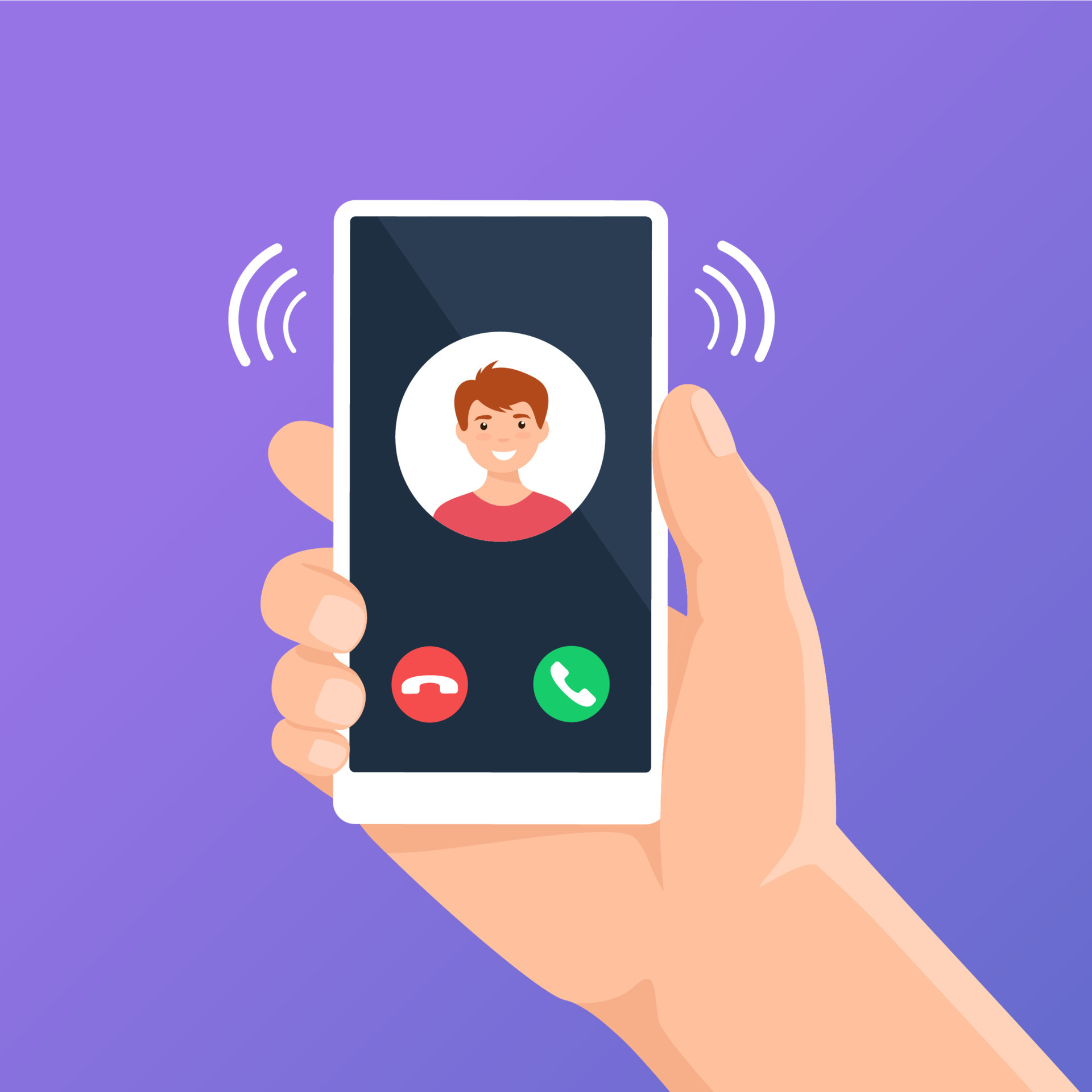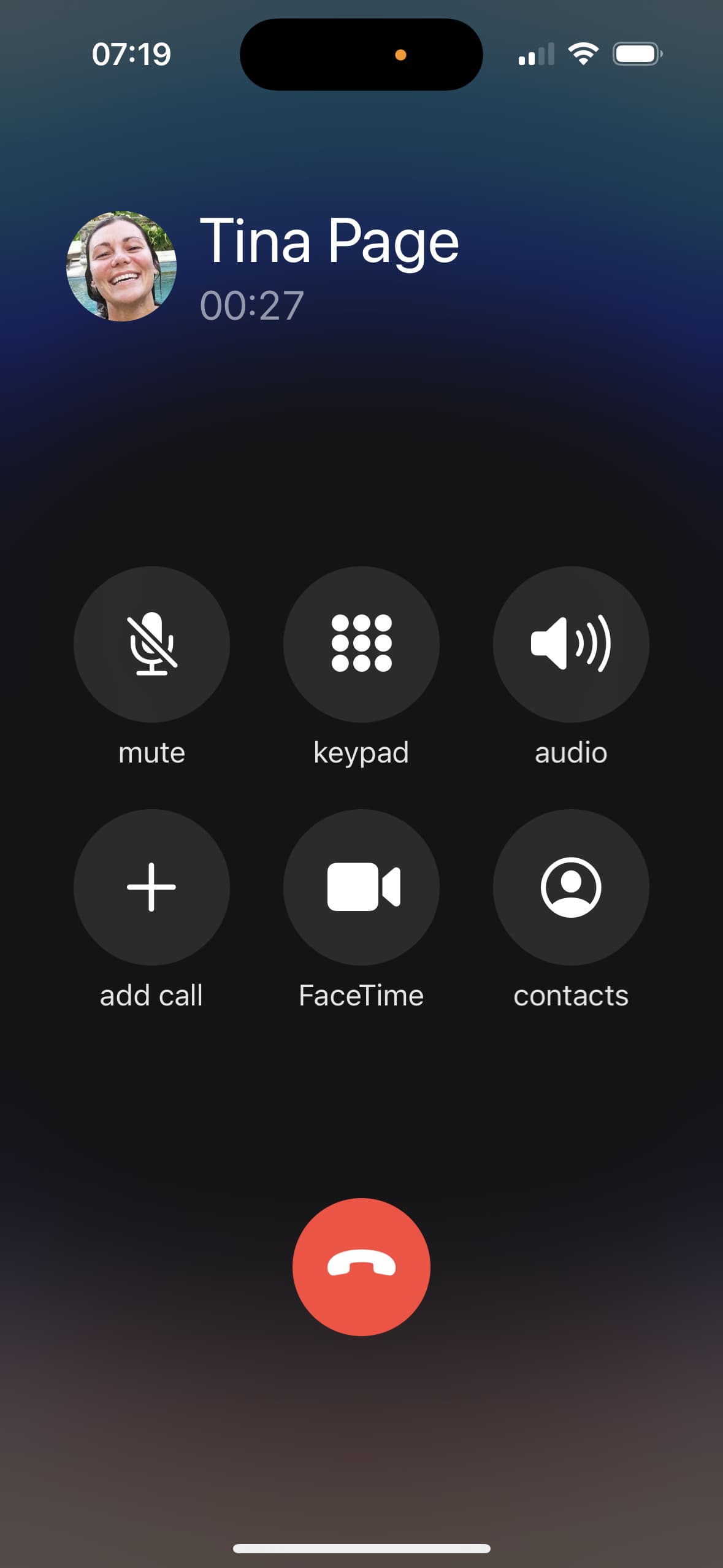In an era where our lives are increasingly intertwined with the digital realm, phrases like "call me sherni leaked" resonate with a chilling familiarity, symbolizing the ever-present threat of privacy breaches. This isn't just about a catchy, trending phrase; it's a stark reminder of how vulnerable our personal communications and digital footprints can be. The public's fascination with such incidents underscores a deeper anxiety about personal boundaries in a hyper-connected world, highlighting the severe consequences when private moments become public spectacles.
This article delves into the complex landscape of digital privacy, dissecting what it means for personal information to be "leaked," the profound impact it has on individuals, and the critical importance of understanding the tools we use for communication. We'll explore how modern communication platforms function, the inherent risks associated with them, and most importantly, the proactive steps everyone can take to safeguard their digital lives against potential exposure and the devastating effects of a phrase like "call me sherni leaked" becoming a reality for anyone.
Table of Contents
- The Digital Echo Chamber: Understanding "Leaked" Content
- The Human Cost of Digital Exposure: Why "Call Me Sherni Leaked" Matters
- Navigating the Digital Landscape: How Communications Can Be Compromised
- Proactive Measures: Safeguarding Your Digital Conversations
- The Role of Platforms: Security and User Responsibility
- Legal and Ethical Dimensions of Digital Leaks
- Beyond the Hype: Rebuilding Trust in the Digital Age
The Digital Echo Chamber: Understanding "Leaked" Content
In the vast, interconnected expanse of the internet, the term "leak" has taken on a significant and often alarming meaning. It refers to the unauthorized disclosure of private or confidential information, which can range from personal photographs and intimate conversations to sensitive documents and private audio recordings. What makes digital leaks particularly insidious is the speed and scale at which they can propagate. Once something is released into the digital ether, it can be shared, replicated, and spread across countless platforms within moments, making it virtually impossible to retract or control its dissemination.
The forms of leaked content are diverse. They might include screenshots of private messages, recordings of phone calls, personal videos, or even data stolen from accounts. The "call me sherni leaked" narrative, whether a specific incident or a generalized fear, encapsulates this vulnerability. It highlights how a seemingly private interaction, perhaps a personal call or an intimate video, can suddenly be thrust into the public eye, often without the consent or knowledge of the individuals involved. This rapid dissemination turns the internet into an echo chamber, where initial leaks are amplified, distorted, and endlessly replayed, leaving a lasting digital footprint that can be incredibly difficult to erase.
The Human Cost of Digital Exposure: Why "Call Me Sherni Leaked" Matters
While the phrase "call me sherni leaked" might initially grab attention as a piece of digital gossip, its underlying implications are profoundly serious, touching upon the very core of human dignity and privacy. The human cost of digital exposure is immense and multifaceted, often leading to devastating consequences for the individuals whose private lives are unwillingly laid bare. When personal communications or sensitive content are leaked, the immediate aftermath can be a torrent of emotional distress, including anxiety, depression, shame, and even suicidal ideation. The feeling of betrayal, of having one's personal space violated, can be deeply traumatizing.
Beyond the immediate emotional toll, a leak can inflict irreparable damage on an individual's reputation, both personal and professional. Careers can be derailed, relationships shattered, and social standing irrevocably altered. In some cases, individuals may face harassment, cyberbullying, or even physical threats as a direct result of their private information being exposed. The concept of consent is paramount here; the sharing of private content without explicit, informed consent is a severe violation of an individual's rights and autonomy. The "call me sherni leaked" scenario serves as a stark reminder that digital privacy is not a luxury but a fundamental right, and its breach carries real-world consequences that extend far beyond the fleeting viral moment, impacting lives for years to come.
- Cctv Mom And Kid
- Jameliz Anal
- Diva Flawless New Nude Videos
- Diva Flawless Ero Me
- Mckinley Richardson Leaked
Navigating the Digital Landscape: How Communications Can Be Compromised
Understanding how our digital communications can be compromised is the first step towards protecting ourselves. In our interconnected world, we rely heavily on various platforms for calls, messages, and meetings. While these tools offer unparalleled convenience, they also present potential vulnerabilities if not used with caution and awareness. The path to a "call me sherni leaked" situation often involves a complex interplay of human error, technical vulnerabilities, and malicious intent.
The Tools of Connection: Understanding Your Communication Platforms
Modern communication largely happens through a myriad of digital platforms, each with its own set of features and potential pitfalls. For instance, when you need to make calls from your computer, you're typically directed to use specific browsers like Google Chrome, Mozilla Firefox, Microsoft Edge, or Safari. This browser dependency highlights a key aspect of digital communication: it's built upon a complex technical infrastructure. While convenient, it's crucial to remember that platforms like Google Voice, for example, have limitations, such as not being able to make emergency calls. This detail, though seemingly minor, underscores the fact that these services are not substitutes for traditional, regulated communication channels, especially when it comes to critical situations.
Furthermore, transparency about costs is a feature of responsible platforms; "If the call isn't free, you get a message from Google Voice. The message says how much the call costs or that the call routes through Google Voice. Learn more about the cost of a call." This transparency is a good sign, but it also reminds us that these are commercial services handling our data. Understanding the "Official Google Meet help center where you can find tips and tutorials on using Google Meet and other answers to frequently asked questions" is vital. These help centers provide crucial information on security settings, privacy controls, and how to use features safely. The "Google Meet app transition from legacy calls to the new Meet call experience" also signifies ongoing changes, requiring users to stay updated on how their data is handled and what new features or security protocols are implemented. Neglecting to understand these basics can inadvertently open doors for data compromise, contributing to scenarios like "call me sherni leaked."
Recording and Retention: The Double-Edged Sword
One of the most potent features in digital communication, and simultaneously one of the most dangerous from a privacy perspective, is call recording. Many platforms offer the ability to record conversations, often with a simple tap. "To record your call, on the ongoing call screen, tap record. To stop recording, tap stop recording." While this feature can be incredibly useful for legitimate purposes—like documenting important business meetings or preserving cherished family conversations—it also represents a significant privacy risk. The ease with which a call can be recorded means that conversations intended to be private can be captured and potentially stored without the explicit consent or even knowledge of all parties involved. This recorded content, if mishandled, stolen, or maliciously distributed, can become the core of a "call me sherni leaked" incident.
It's also important to note the limitations and differences across devices. "You can't use incoming call options, like call recording and call transfer, on a computer or mobile device" in certain contexts, which might seem like a privacy safeguard. However, this doesn't prevent other forms of capture, such as screen recording or external recording devices. The very existence of these recording capabilities, combined with varying user awareness and platform policies, creates a complex environment where private conversations are always at risk of becoming permanent records. The key lies in understanding when and how these features are used, and ensuring all parties are aware and consenting to any form of recording.
Unintended Consequences: Bluetooth Devices and Live Captions
Beyond explicit recording features, seemingly innocuous functionalities and hardware can also contribute to privacy vulnerabilities. Consider Bluetooth devices: "If you use a Bluetooth® device, you might not be able to use the device buttons to answer." While this might seem like a minor inconvenience, it highlights how external hardware can interact with communication software in unexpected ways, potentially leading to calls being answered or dropped inadvertently, or even creating an unclear audio stream that could be misinterpreted or misused. Such technical quirks, though not direct causes of leaks, underscore the complexity of our digital ecosystem where minor glitches can have larger implications.
Another fascinating yet potentially risky feature is live captioning. "With a single tap, live caption automatically captions speech on your device. You can use it on media like videos, podcasts, phone calls, video calls, and audio messages." This accessibility feature is incredibly beneficial for individuals with hearing impairments or for those in noisy environments. However, the fact that speech is automatically transcribed on a device means that a text record of a conversation is being generated. While this transcription is typically localized to the device for privacy, the existence of such a text record, even temporary, introduces another potential point of data capture. If a device is compromised, or if the user is unaware of how these captions are handled, sensitive information from a "call me sherni leaked" type of conversation could theoretically be extracted from these transcriptions. Awareness of every feature, no matter how helpful, is crucial for maintaining digital security.
Proactive Measures: Safeguarding Your Digital Conversations
Given the pervasive nature of digital communication and the inherent risks, taking proactive measures to safeguard your digital conversations is paramount. Preventing a "call me sherni leaked" situation for yourself or others starts with a robust approach to cybersecurity and privacy hygiene. The first line of defense is always strong, unique passwords for all your online accounts, coupled with two-factor authentication (2FA). This significantly reduces the risk of unauthorized access, even if your password is compromised.
Beyond basic password security, it's crucial to be perpetually aware of phishing attempts and social engineering tactics. Malicious actors often try to trick users into revealing sensitive information or clicking on harmful links. Always verify the sender of emails and messages, and be suspicious of anything that seems too good to be true or creates a sense of urgency. Regularly review the privacy settings on all your communication apps and social media platforms. Understand who can see your content, who can contact you, and what data the apps are collecting. Many platforms offer granular controls that, if properly configured, can significantly reduce your exposure.
For organizations, controlling communication tools is also key. The ability to "Turn off Meet's call creation ability to prevent your users from placing calls and starting meetings, but they can continue to receive calls or join meetings created by others" is an example of an administrative control that can reduce the surface area for potential leaks. By limiting certain functionalities, organizations can enforce stricter security protocols. For individuals, this translates to being mindful of what features are enabled on your devices and apps, and disabling those you don't use or that pose an unnecessary risk. Every step taken to tighten your digital security reduces the chances of your private moments becoming public spectacle.
The Role of Platforms: Security and User Responsibility
While individual vigilance is crucial, communication platforms themselves bear a significant responsibility in ensuring the security and privacy of their users. Reputable platforms invest heavily in robust encryption, secure infrastructure, and continuous security updates. For instance, the "Official Google Meet help center" is a resource designed to empower users with knowledge about the platform's features and security protocols. Initiatives like "Avoid scams and fraud with verified calls" demonstrate a commitment to user safety by providing tools that help identify legitimate callers, thus preventing users from falling victim to scams that could lead to data breaches or financial loss.
The ongoing "Google Meet app transition from legacy calls to the new Meet call experience" also illustrates platforms' efforts to evolve and improve their services, often incorporating enhanced security features and user interfaces. However, even with the most advanced security measures in place, the ultimate responsibility for digital safety is a shared one. Platforms provide the tools and the framework, but users must actively engage with these features. This means taking the time to understand privacy settings, utilizing available security tools, and reporting suspicious activity. For example, the ability to "Reverse phone number look up when you receive a call from an unknown number, you can look up the phone number on your phone app" is a user-empowering feature. It allows individuals to vet unknown callers, a critical step in preventing unwanted contact or potential social engineering attempts that could lead to a "call me sherni leaked" scenario. Users must be proactive in leveraging these protective measures rather than passively relying solely on the platform's inherent security.
Legal and Ethical Dimensions of Digital Leaks
The unauthorized disclosure of private information, especially in cases like a "call me sherni leaked" incident, transcends mere technical issues; it delves deep into complex legal and ethical territories. From a legal standpoint, many jurisdictions have enacted privacy laws (such as GDPR in Europe or CCPA in California) that protect individuals' personal data and grant them rights over how their information is collected, processed, and shared. Leaking private communications can constitute a violation of these laws, leading to significant penalties for the perpetrators, including fines and imprisonment. Additionally, specific laws often exist to combat cyberstalking, harassment, and the non-consensual sharing of intimate images, all of which can be components of a digital leak.
Ethically, the act of leaking private content is a profound breach of trust and respect. It disregards an individual's right to privacy and autonomy, treating their personal life as public entertainment. The "call me sherni leaked" phenomenon highlights a societal problem where the desire for sensationalism often overrides basic human decency. There's a moral imperative for individuals to consider the severe harm they inflict by sharing or consuming leaked content, even if they are not the original source. Promoting a culture of digital empathy and responsibility means recognizing that behind every piece of leaked content is a real person whose life is being impacted. The consequences for those who perpetrate such acts can include legal repercussions, reputational damage, and social ostracization, underscoring that digital actions have tangible, real-world accountability.
Beyond the Hype: Rebuilding Trust in the Digital Age
The pervasive anxiety surrounding incidents like "call me sherni leaked" underscores a fundamental challenge of our digital age: how to rebuild and maintain trust in a landscape where privacy is constantly under siege. Moving beyond the initial shock and sensationalism requires a concerted effort from individuals, technology providers, and policymakers alike. At its core, it's about fostering a culture of digital responsibility and literacy. Education is paramount; users need to understand not just how to use technology, but also the inherent risks, the importance of privacy settings, and the potential consequences of their online actions.
For technology companies, it means prioritizing user privacy and security in design, providing transparent policies, and offering intuitive tools for users to control their data. It also involves swift and effective responses to security vulnerabilities and breaches. For society at large, it necessitates a shift in how we perceive and consume digital content, moving away from the voyeuristic thrill of leaked information towards a collective respect for individual privacy. The ongoing battle against cyber threats and privacy violations is not just about technical solutions; it's about establishing ethical norms and legal frameworks that reflect the value of personal space in an increasingly public world. Only through a shared commitment to digital integrity can we hope to navigate the complexities of the internet safely and restore confidence in our ability to communicate and connect without fear of exposure.
In conclusion, the phrase "call me sherni leaked" serves as a powerful symbol of the ongoing struggle for digital privacy in our hyper-connected world. It reminds us that every conversation, every shared moment online, carries a potential risk. Understanding the intricacies of our communication tools, from browser compatibility for calls to the implications of live captioning and call recording, is crucial. While platforms like Google Meet and Voice offer invaluable services, users must remain vigilant, employing strong security practices and being aware of how their data is handled. The human cost of a privacy breach is immense, affecting mental well-being, reputation, and personal safety. By adopting proactive measures, understanding the shared responsibility between users and platforms, and recognizing the profound legal and ethical dimensions of digital leaks, we can collectively strive to create a safer, more private online environment. Don't let your digital life become a public spectacle. Take control of your privacy today. Share this article to spread awareness, and explore other resources on our site to further secure your digital footprint.
Related Resources:



Detail Author:
- Name : Prof. Sid Beier MD
- Username : kovacek.rasheed
- Email : julianne.toy@ledner.info
- Birthdate : 1994-12-30
- Address : 410 Beer Unions Jackytown, AL 12941-4940
- Phone : 715.467.4859
- Company : Kling PLC
- Job : Streetcar Operator
- Bio : Non quod deleniti asperiores ut aut sit numquam odio. Incidunt aut sed aut pariatur. Voluptates reiciendis nihil delectus ex aliquid.
Socials
instagram:
- url : https://instagram.com/sister.zboncak
- username : sister.zboncak
- bio : Assumenda autem dolor cupiditate. Ad et non harum ab possimus vel quidem.
- followers : 3976
- following : 1793
facebook:
- url : https://facebook.com/szboncak
- username : szboncak
- bio : Accusamus sunt quia consequatur enim.
- followers : 3592
- following : 1893
linkedin:
- url : https://linkedin.com/in/sister_zboncak
- username : sister_zboncak
- bio : Exercitationem aut ut voluptatem.
- followers : 5428
- following : 1288